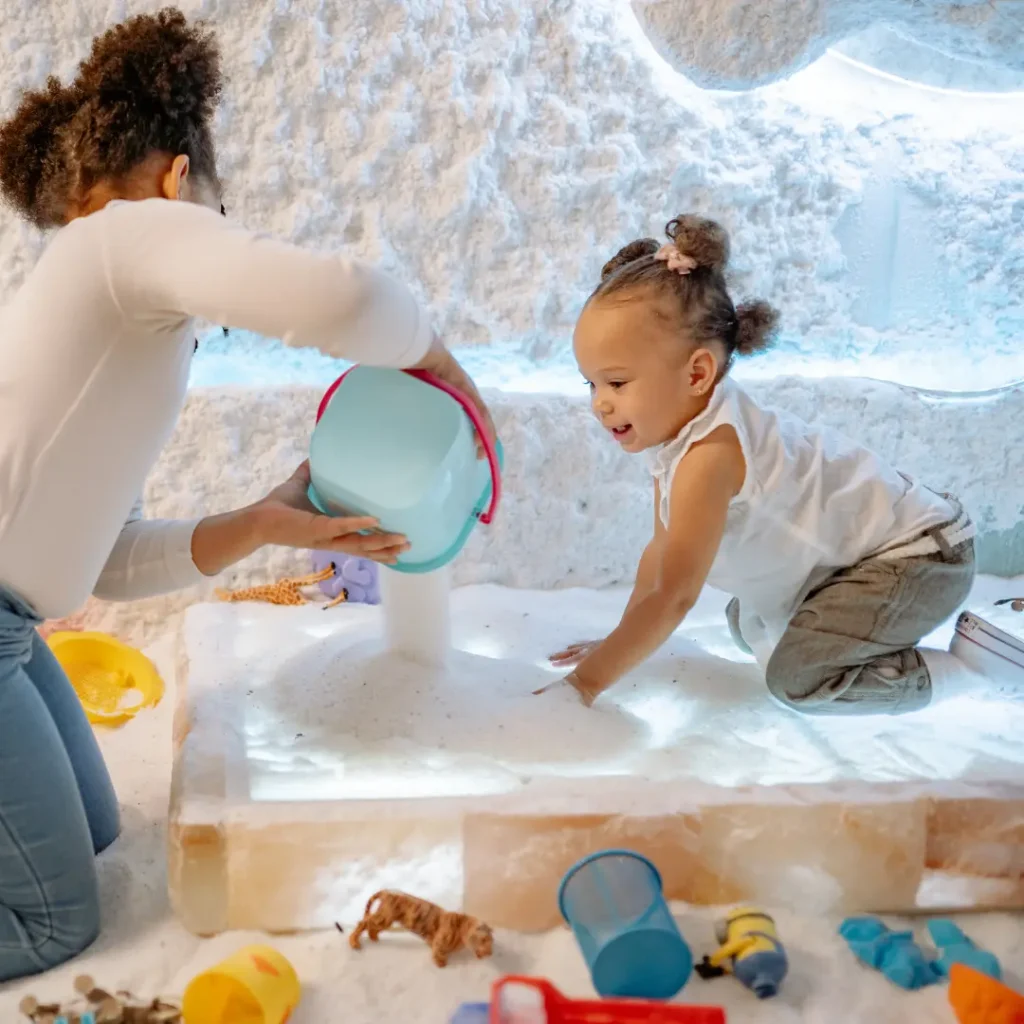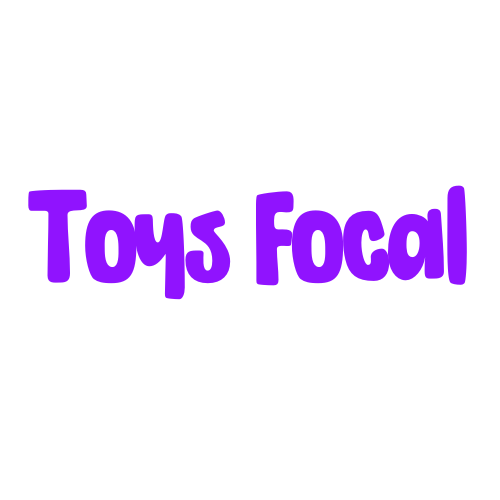
Engaging in playtime with your baby is not just about having fun; it’s a crucial aspect of their early development. Playful interactions stimulate babies’ brains, helping them build essential skills that lay the foundation for future learning and growth.
In this article, we’ll explore a variety of play activities tailored for babies aged 0-12 months, focusing on three key areas: sensory exploration, motor skill development, and cognitive stimulation.
Plus, you’ll find expert videos and resources for even more insight into the power of Play & Toys!
Play With Us!
Sensory Exploration for Babies
During the first six months, babies are rapidly developing their senses. Engaging them in sensory play helps them explore the world around them and make sense of new experiences.
- Tummy Time: Place your baby on their tummy on a soft surface. This encourages them to lift their head, strengthening neck and back muscles while also providing a new perspective of the world. You can make tummy time more engaging by placing colorful toys or a mirror in front of them.
- Texture Play: Introduce your baby to various textures like soft fabrics, crinkly paper, or smooth surfaces. Let them touch and feel different materials, stimulating their sense of touch and curiosity.
- Sound Play: Sing songs, play soft music, or make gentle sounds with rattles or other toys. This helps babies develop their auditory senses and learn to differentiate between various sounds.
- Visual Stimulation: Hang a mobile with contrasting colors or patterns above your baby’s crib. This captivates their attention and helps them develop visual tracking skills.
- Fingerplays and Songs: Engage your baby in fingerplays like “Pat-a-Cake” or sing simple songs with hand motions. This combines auditory and visual stimulation while also promoting bonding.
Motor Skill Development for Babies
As babies grow, they become more mobile and eager to explore. Play activities that encourage movement help them develop gross and fine motor skills.
- Reaching and Grasping: Offer your baby toys of different shapes and sizes to encourage reaching and grasping. This strengthens their hand-eye coordination and fine motor skills.
- Rolling and Crawling: Create a safe space for your baby to practice rolling and crawling. This helps them develop core strength and coordination, preparing them for future milestones like sitting and walking.
- Sitting Play: Once your baby can sit with support, surround them with toys that they can interact with. This encourages them to reach, grasp, and manipulate objects, further developing their motor skills.
- Object Permanence Play: Play peekaboo or hide-and-seek with toys. This helps babies understand that objects continue to exist even when they can’t see them, a concept known as object permanence.
- Interactive Playmats: Use playmats with hanging toys or activities that encourage reaching, kicking, and tummy time. These mats provide a stimulating environment for babies to explore and develop their motor skills.
Cognitive Stimulation for Babies
As babies approach their first birthday, their cognitive abilities are rapidly expanding. Play activities that challenge their thinking and problem-solving skills are essential.
- Stacking and Nesting Toys: Provide your baby with stacking rings, cups, or blocks. This helps them learn about spatial relationships, cause and effect, and problem-solving as they figure out how to stack or fit objects together.
- Shape Sorters: Introduce shape sorters with different geometric shapes. This helps babies learn about shapes, colors, and spatial reasoning as they match the shapes to the correct openings.
- Cause-and-Effect Toys: Offer toys that respond to your baby’s actions, such as toys that light up or make sounds when pressed or shaken. This helps them understand cause and effect and encourages exploration.
- Simple Puzzles: Start with simple puzzles with large, chunky pieces that are easy for babies to grasp. This helps them develop problem-solving skills and hand-eye coordination.
- Books and Rhymes: Read to your baby regularly and recite nursery rhymes. This exposes them to language, sounds, and rhythm, promoting early literacy skills.
Remember, the most important aspect of play is to have fun and connect with your baby. Follow their lead, be responsive to their cues, and enjoy this special time of bonding and learning together.
Let’s help parents choose the best toys! Share this if you agree.
Resources
- Harvard – Center on Developing Child – 5 Games to Play with Babies (9 months)
- Harvard – Center on Developing Child – 6 Games to Play with Babies
